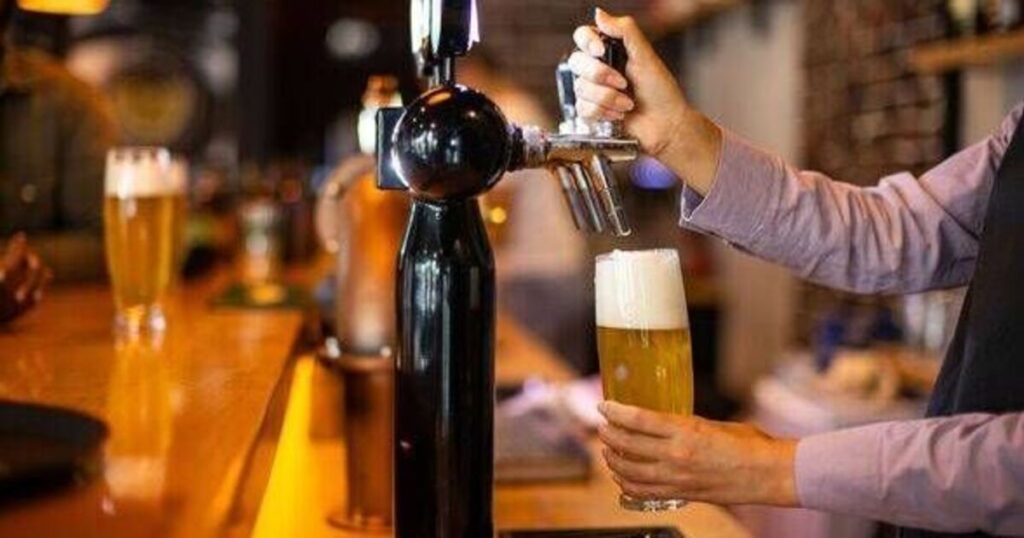
After nearly a decade of regular drinking, I decided to give up alcohol for good at the end of August last year. My drinking habits were not particularly heavy; I savoured the occasional glass of wine on weekends or a pint of beer in the sunshine. Just last year, I had even attended a wine tasting event in Bordeaux, France. I relished learning about wine pairings, the various types of grapes, and how to identify a quality bottle. Sitting outside a café on one of Bordeaux’s many ‘rues’, sipping a chilled glass of white wine during last year’s 30C heatwave was pure bliss.
However, despite years of consuming alcohol, I began to notice some unpleasant side effects — and I’m not referring to hangovers. Stomach cramps and bloating often led to sleepless nights, severe headaches, and frequent trips to the loo. These symptoms persisted throughout the summer until I finally decided to quit drinking at the end of August.
A few weeks later, a serious diagnosis confirmed my worst fears — I could no longer consume alcohol.
I was diagnosed with ulcerative colitis, a chronic inflammatory bowel disease that causes inflammation and ulcers in the large intestine.
Alcohol, along with certain foods, was among the many triggers that worsened the symptoms, which include bloody diarrhoea, debilitating abdominal pain and cramping, fatigue, weight loss, loss of appetite, and nausea and vomiting.
Whilst I wasn’t a frequent drinker, the thought of not being able to savour a glass of red by a fire or a chilled pint in a pub garden on a sunny day was a bit disheartening.
Fast forward almost a year, and I can sincerely say I don’t miss alcohol. I certainly don’t miss the hangovers, headaches or the morning-after remorse.
However, the most significant change for me has been the reduction in my anxiety levels.
Alcohol is often seen as a means to « relax » and « unwind », and while it does provide some relaxation, it can also trigger feelings of anxiety the following day.
Drinkaware explains that alcohol slows down the processes in your brain and central nervous system, which can make you feel less inhibited and therefore more relaxed.
However, these effects are temporary and can lead to heightened anxiety levels as alcohol disrupts the balance of neurotransmitters and chemical messengers in the brain.
I would frequently spend days after a family gathering or social event anxiously replaying every conversation, looking for signs that I had made a fool of myself. Of course, I hadn’t; I was just anxious.
Eliminating alcohol from the mix has significantly reduced the knot in my stomach, particularly after spending time with friends or family.
In addition to feeling less anxious, I’ve found that my sleep quality has improved dramatically without alcohol in my system.
It’s common knowledge that a few glasses of wine or pints can make you feel drowsy and even aid in falling asleep. However, alcohol consumption reduces the amount of deep sleep you get, which is crucial for rest and recovery, leaving you feeling fatigued and sluggish the following day.
Additionally, you’re more likely to need the loo during the night, disrupting your sleep.
Since giving up alcohol, my sleep has significantly improved. I used to lie awake for hours waiting to nod off, but this is no longer a problem.
However, I can’t solely attribute this to the absence of alcohol, as I’ve also reduced my caffeine intake, avoiding fizzy drinks and sticking to decaffeinated tea and coffee.
Perhaps the most significant incentive to quit alcohol permanently is the cost. Whether it’s going out for a few pints once a week or picking up a bottle of wine from the supermarket, it quickly adds up.
The Independent reports that the average price of a pint in the UK is £4.79. This means that having a couple of pints each week could total around £38 a month, nearly £460 annually.
I never splurged excessively on alcohol, but when I purchase alcoholic beverages for friends and family, I now can’t help but notice the cost.
I don’t resent anyone for choosing to drink alcohol or for drinking in my presence. When consumed responsibly, alcohol can be a fantastic way to socialise and meet new people.
Although giving up alcohol wasn’t exactly a choice for me, I wouldn’t return to my old drinking habits even if I had the chance.
